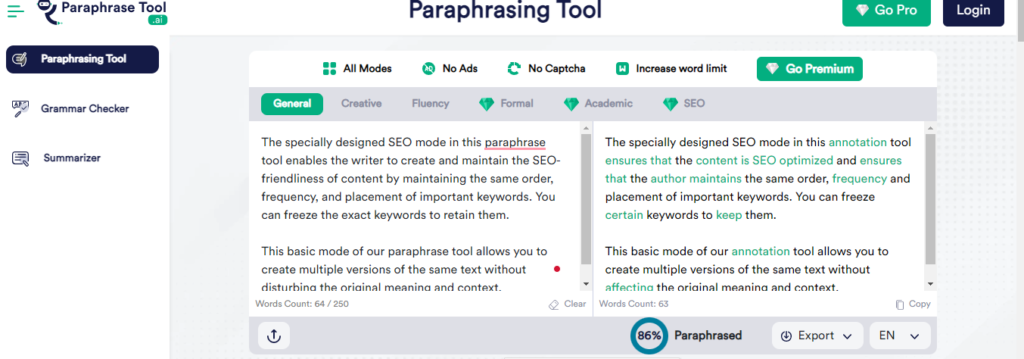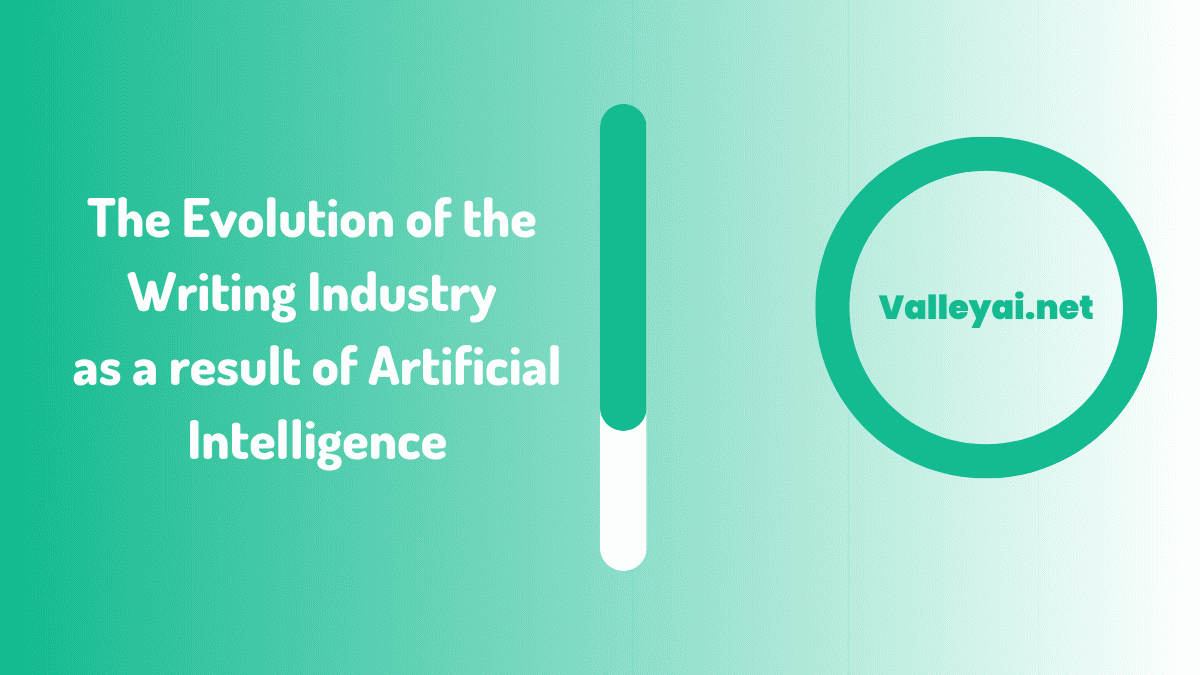The world is changing at lightning-fast speed due to artificial intelligence (AI), and the writing profession is no exception.
AI-powered writing tools are becoming more popular, and writers are using them to streamline their work.
The writing industry has undergone significant changes and transformations due to the arrival of Artificial Intelligence (AI).
We will examine how AI has affected the writing industry. We will also discuss the potential and problems AI brings to the writing industry.
By the end of this article, you will have a greater knowledge of how AI is changing the writing landscape.
Most common challenges faced by writers
The following are some of the challenges that writers encounter most frequently:
Writer’s block
All writers may encounter writer’s block at some stage. It is the most common writing issue. Many things, including stress, worry, or just a lack of creativity, might contribute to it.
Time management
When you have other responsibilities, it might be challenging to find time to write since writing can be a time-taking process. It may be difficult to fulfill deadlines if this causes procrastination.
Self-doubt
Many content writers fight self-doubt. Sometimes, they think their written content is not valuable. As a result, they fail to craft top-quality content.
Comparing yourself with other writers
It is simple to compare yourself to other writers. This situation gives headaches to many writers.
Despite these difficulties, writing can be a fruitful activity.
The emergence of Artificial Intelligence in the writing field
Artificial intelligence (AI) is a field of computer science concerned with making systems that can think, learn, and act independently.
Read also: How did computers change the world
AI study has been very good at finding effective ways to solve a wide range of problems, from playing games to diagnosing health problems.
In the past few years, people have become more interested in using AI for writing purposes. AI-powered tools can help writers to:
Generating ideas
AI can be used to come up with new ideas for writing by coming up with topics, finding patterns, and finding links between ideas that don’t seem to go together.
Researching topics
It helps you find useful information from a variety of sources quickly and effectively.
Organizing thoughts
AI-writing tools can be used to make mind maps and other visual models of material to help organize thoughts and ideas.
AI can catch mistakes in language, spelling, and phrasing. With AI-based writing tools, you can create compelling content for blog posts, articles, website copies, and social media posts.
How can the rise of AI-powered paraphrasing tools help writers improve their content?
These days, an online paraphrasing tool helps writers in various ways. AI-based paraphrase tools can help writers make their writing clearer and shorter by offering words and sentences that are more powerful and easier to understand.

An online paraphrase can help writers improve their writing style by suggesting better word choices and sentence structures.
This helps you improve your language and choose more accurate and varied words, making your work more interesting and creative.
A reliable paraphrasing tool has a built-in grammar and syntax checker. It automatically finds problems in grammar, phrasing, and how your sentences are put together.
In this way, you can learn from your mistakes, which will help you improve your writing.
Even though an online paraphrasing tool can help you improve your writing style, it is important to remember that it’s just a tool and not a replacement for your own writing skills. To improve your writing skills, you need to use it as a guide and keep writing on your own.
Ethical Considerations in AI-generated Content
Artificial Intelligence’s emergence has aroused a few questions that need to be answered.
Here are some important considerations for AI-written content:
Plagiarism and intellectual property
AI-crafted content could break intellectual property laws if it copies or changes current works without giving credit or getting permission.
Bias & discrimination
AI systems learn from the data they already have, which may have flaws in them.
If field experts do not fix these biases, AI-generated content can reinforce and worsen stereotypes and discrimination.
To deal with these considerations, writers, lawmakers, and society as a whole need to work together.
Setting up strict rules and ethics standards can help make sure that AI-generated content respects intellectual property rights, does not spread false information, reduces bias, protects privacy, and is held responsible for how it affects people and society.
Future Outlook of Artificial Intelligence in the writing field
To predict what will happen with AI in the writing industry in the future, you have to look at current trends and developments. Here are some possible predictions:
Better help with writing
AI will continue to improve as a useful tool for writers, giving them more advanced help with writing.
AI tools will get better at making ideas about language and style in real-time, improving sentence structure, and giving comments based on context.
This will help writers improve their writing and polish their work.
Augmented writing platforms
AI features will be easily built into writing platforms, giving writers full tools. These platforms will mix standard ways of writing with AI-powered features. This will make writing faster, easier, and more fun.
Natural Language Generation
Natural Language Generation (NLG) methods will get better, so AI systems will be able to make stories that sound like humans wrote them and are relevant to the situation.
With NLG, AI will be able to write stories, plays, and even books, making it hard to tell the difference between human content and AI content.
Customized writing experiences
AI will be used to make writing experiences unique for each person based on their tastes and writing styles.
AI tools will learn the unique styles of their users and help them improve their writing in a way that fits their goals.
It’s important to keep in mind that these statements are just guesses, and the real path of AI in the writing business may be different.
The future of AI in writing will depend on how fast technology improves, how decent it is, and how well people accept it.
Conclusion
Artificial intelligence is having a big effect on the writing industry.
AI-powered tools and technologies are making it easier and faster for writers to make high-quality content, and they are opening up new opportunities for creativity and innovation.
As AI keeps improving, we can expect to see even more powerful and complex tools that will change the writing business in even more ways.
Kaleem
My name is Kaleem and i am a computer science graduate with 5+ years of experience in Computer science, AI, tech, and web innovation. I founded ValleyAI.net to simplify AI, internet, and computer topics also focus on building useful utility tools. My clear, hands-on content is trusted by 5K+ monthly readers worldwide.

